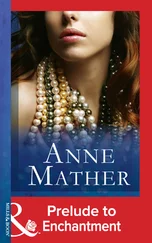“Oh yes! It’s a persistent insecticide. Most washes off but traces remain. The worst thing about Impermease is that it accumulates in the human body. The way DDT used to do. Only DDT was harmless to everything except birds and insects. In the seventies—just before it was banned—every man, woman and child in the United States had measurable amounts of DDT stored in their body fat. Absorbed with the food they ate and even the air they breathed. The stuff didn’t break down, but it didn’t do much harm either. Humans slowly got rid of it over the next ten years. Even those people who ate it by the kilo to prove how safe it was.”
“It was banned so it must be dangerous. When I was a kid I heard of an aunt who killed herself with DDT.”
“It wasn’t the DDT that killed her. It was drinking the several liters of kerosine in which it was dissolved.” Judith gave an impatient gesture. “I only mentioned DDT to show you how one insecticide got into everyone. Impermease has done the same. Accumulated in every woman who’s eaten regularly food from crops treated with Mogro. Now do you see how the stuff’s reached almost everybody? Affluent and starving. The starving got it with relief shipments as insecticide contamination. The poor got it as a discreet additive. An additive added by governments trying to control their runaway birth rates. They’ve reduced the birth rates—with a vengeance! That’s why the truth hasn’t yet been published. Would you like to be a Minister in some country where every peasant would try to tear you apart if he found you’d sterilized his new-bought bride?”
“Judy—surely they’ve come up with an answer by now?” “They’ve been researching the stuff like hell for years. Under the blanket of the Social Stability Act. Trying to find some way to reverse the Impermease effect.” She sighed. “It’s hopeless! The eggs were made infertile twenty years ago. It’s ns hopeless as trying to bring a twenty-year-old corpse back to life!”
That left me with a lot to think about during our thousand click ride north.
The road ended abruptly at the bridge. The spans were intact but the roadway had been taken up; the planks for a makeshift replacement were piled on the far side. I skidded my Slada to a halt and grabbed my CB. “Hold it!”
“Why?” Judith’s signal was too strong. She should be way astern.
“There’s a bridge down. Stay where you are and let me scout.” The wrecked cars we had passed during our journey north had been warnings that bandits were now a hazard on back roads. Since leaving the highway at Standish I had insisted on riding point. For the last few kilometers we had been following a dirt road winding along beside a creek with the deep woods of Maine on each side of us and the tang of the sea ahead.
“The Settlement’s only a little way beyond the bridge. I’m coming up!”
It was no good my telling her once again to stay where she was. I searched the creek and the woods as I heard her bike rounding the bend. When she pulled up beside me there was a flicker of movement among the trees. I muttered, “We’re being watched.”
“Good!” She took off her helmet, shook out her Titian hair, and smiled at the woods and the stream.
“Someone’s watching the bridge.” I saw the movement again. “Up there—by those beech trees.”
“Doctor Grenfell!” A girl’s voice came from the far bank. I did not see her until she broke cover, slipping from the bushes less than fifty meters from us. A slim youngster in a dark-blue jersey and jeans who came jumping from stone to stone across the creek, golden hair flying.
“Barbara!” Judith put her bike on its side-stand and ran to meet her. “Barbara Bernard!” They kissed, then Judith held the girl at arm’s length, smiling down at her. “You’ve grown so! I hardly recognized you.”
“You look older too, Doctor.” She was returning Judith’s smile, humor and affection in her voice. “We thought you were dead.”
“You can see I’m not.” Judith put her arm around the girl and brought her over to me. “This is Barbara, an old friend of mine. Barbara, meet Mister Gavin—a new friend.”
I took her hand with that benign courtesy men of my age and type use as a defense against teenage girls. Her fingers were slim, her grip was firm. Everything about her was firm from the set of her mouth and chin to the way she stood, from the assurance with which she had greeted Judith to the way she studied me. I put her age at a young seventeen, but her gray eyes mirrored confidence and experience. I was both fascinated and warned.
“Barb!” A boy had stepped from behind the beech trees. “Who are they? What shall I call in?” Glancing up I was startled to see he was hefting a rifle. We had been covered as well as watched.
“Say that Doctor Grenfell’s here. That she has a man with her.” She looked at Judith’s Yama. “When Ruth radioed that a woman biker was heading this way I should have known it must be you.”
“You’ve got lookouts up the road?”
“Back to the fork. We like to be warned when visitors are coming. And to know who they are.” She called across the creek. “Bring up the bridge squad. And have Hilda tell Chairman Yackle that the Doc’s on her way.” She turned to Judith. “We’ll have the planks on within ten minutes. Then you’ll be able to ride in.”
“No need for them to haul lumber.” Judith pulled on her helmet and studied the creek. “The old ford still passable?” “For you—yes. For Mister Gavin—I don’t know.” She regarded me with frank skepticism.
Judith laughed and tightened the chin strap of her helmet. “Gavin, wait to see if I get across. If I dump—don’t you try!” And she was astride her bike and away, weaving down the bank, plunging through the creek, and roaring up the far side.
“She makes it look easy,” said Barbara, watching Judith’s maneuver with detached admiration. “It isn’t! You’d better wait till we’ve got the planks down.”
I was not going to play second string under the critical eyes of this teenage brat. I didn’t dump but I did stall in mid-creek and finally arrived beside Judith muddy, sweating, and annoyed. My temper was not improved when she greeted me with advice to the effect that I should keep my revs high when my pipes were under water. I called my Slada something I usually reserve for horses. Then the bridge squad arrived and, finding they were not needed, formed an honor guard to escort us into Sutton Cove.
Judith made a triumphant entry, with me trailing astern. At first sight the Settlement was not much to look at; several hundred wooden houses clustered around a small cove at the end of a narrow valley. Men, women, and hordes of children came pouring from the houses to greet the returning doctor; their display of affection for Judith in sharp contrast to the looks they gave me. I parked my bike beside hers outside a building which seemed to serve the duties of Council Chamber, Chapel, and Town Hall and stood ignored while she was being embraced by people of all ages and both sexes.
A plump little man emerged from the building. “Doctor Grenfell—the Light has led you back to us! And at a time when your skills are sorely needed!”
“Chuck Yackle—Chairman Yackle!” Judith threw her arms about him, kissing his bald head. “I thank the Light for guiding me home!”
Amused and depressed, I turned to look down the village street toward the cove. Boats were coming in from the sea; word of her arrival had apparently reached even the fishing fleet. I watched boat after boat shouldering through the rip across the mouth of the harbor. These people looked poor, but—
“Gavin!” Judith’s hand was on my arm. ‘This is Chuck Yackle—Chairman of the Settlement Council.”
Читать дальше
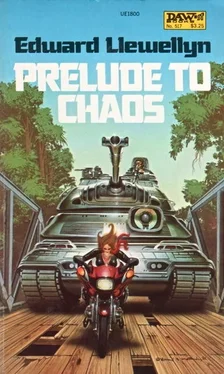
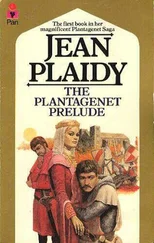



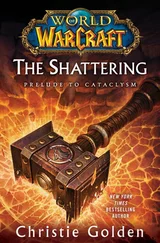
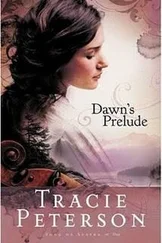
![Айзек Азимов - Прелюдия к Основанию [= Прелюдия к Академии // Prelude to Foundation]](/books/435122/ajzek-azimov-prelyudiya-k-osnovaniyu-prelyudiya-k-ak-thumb.webp)



